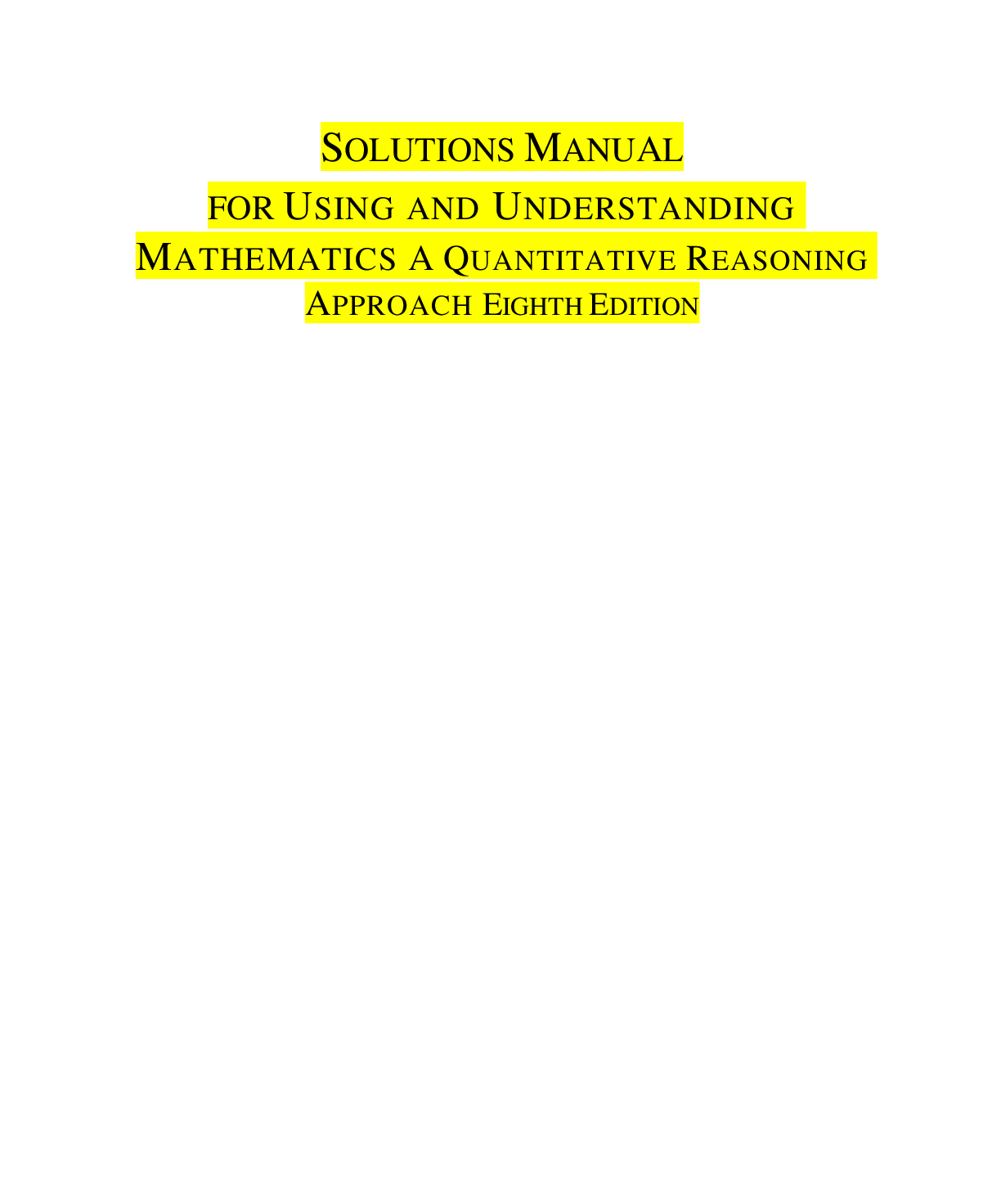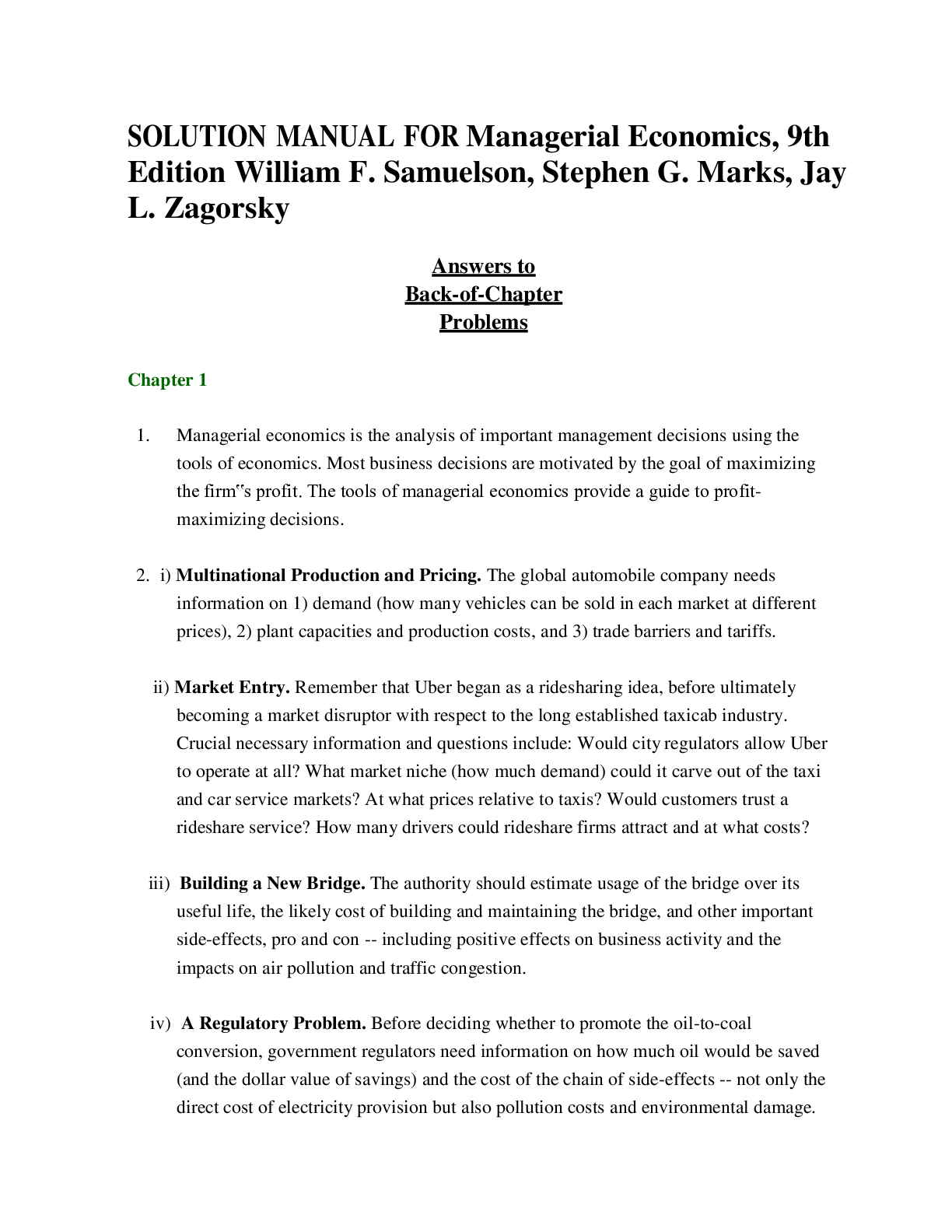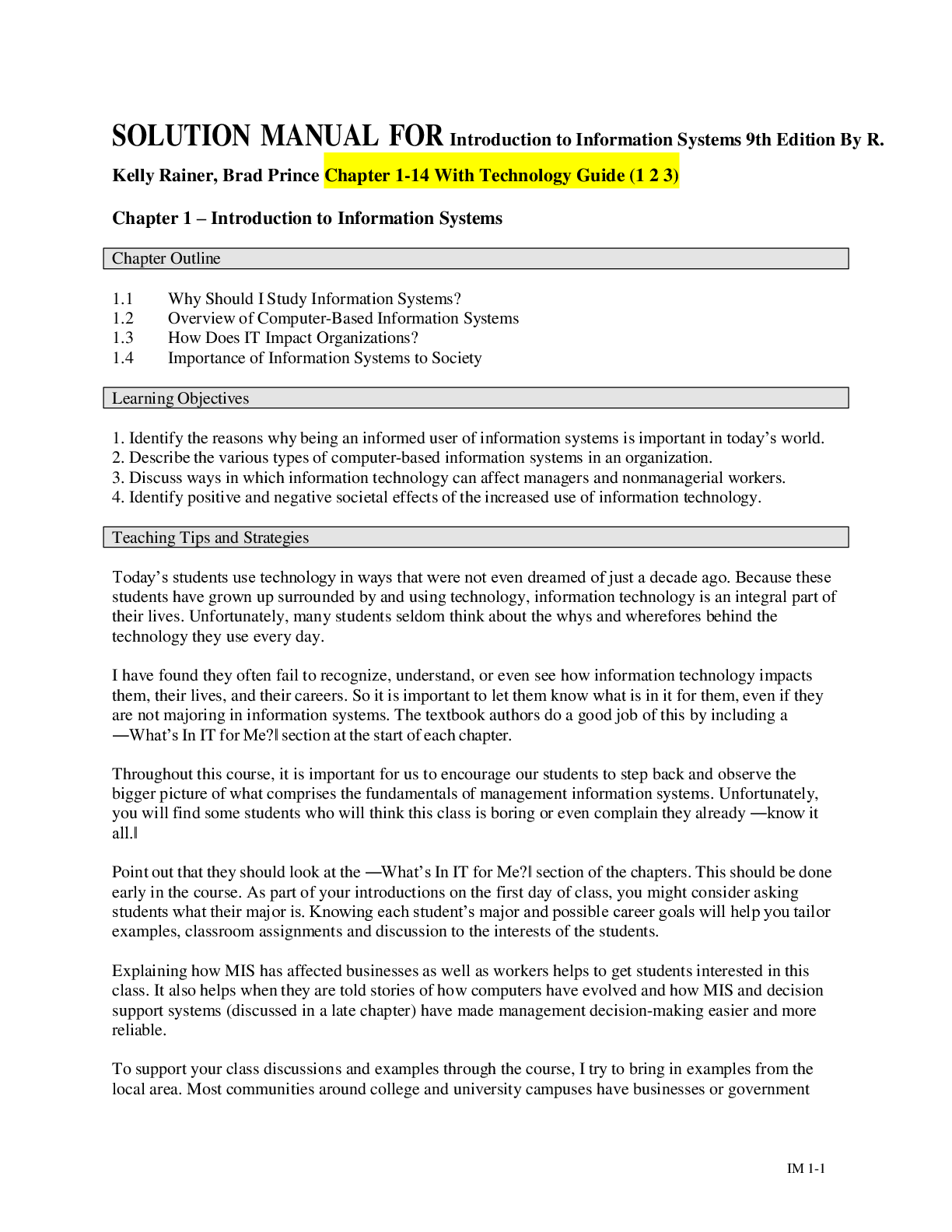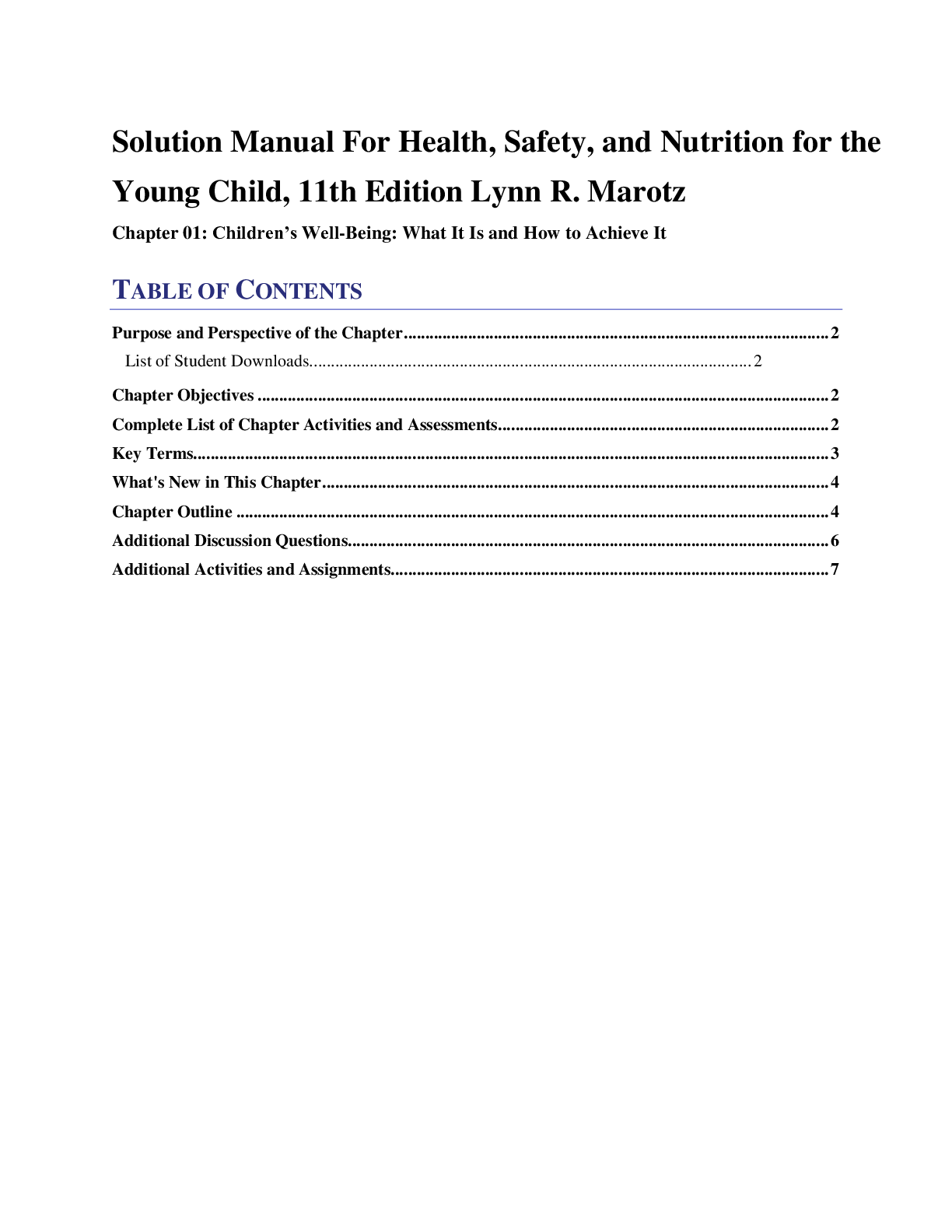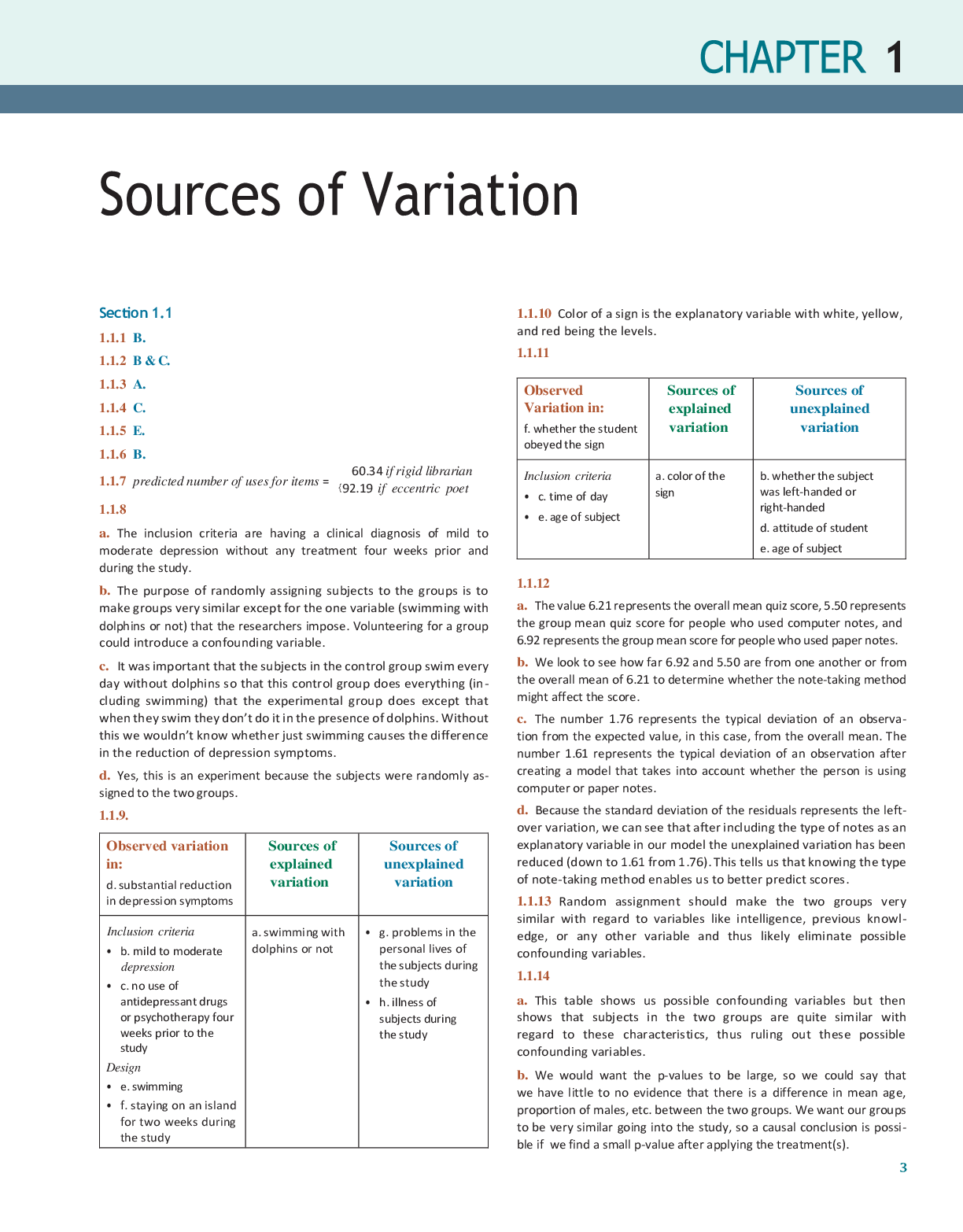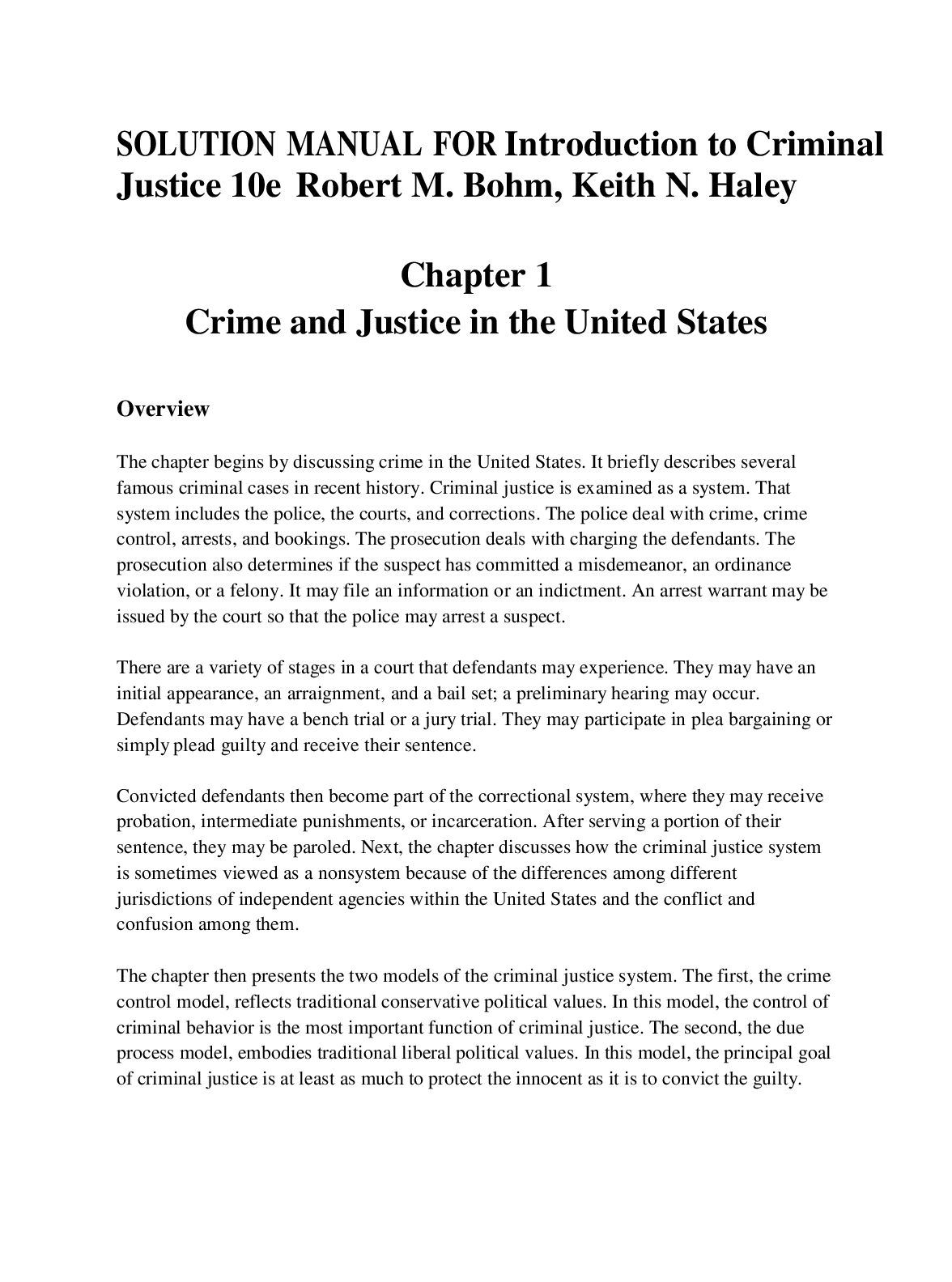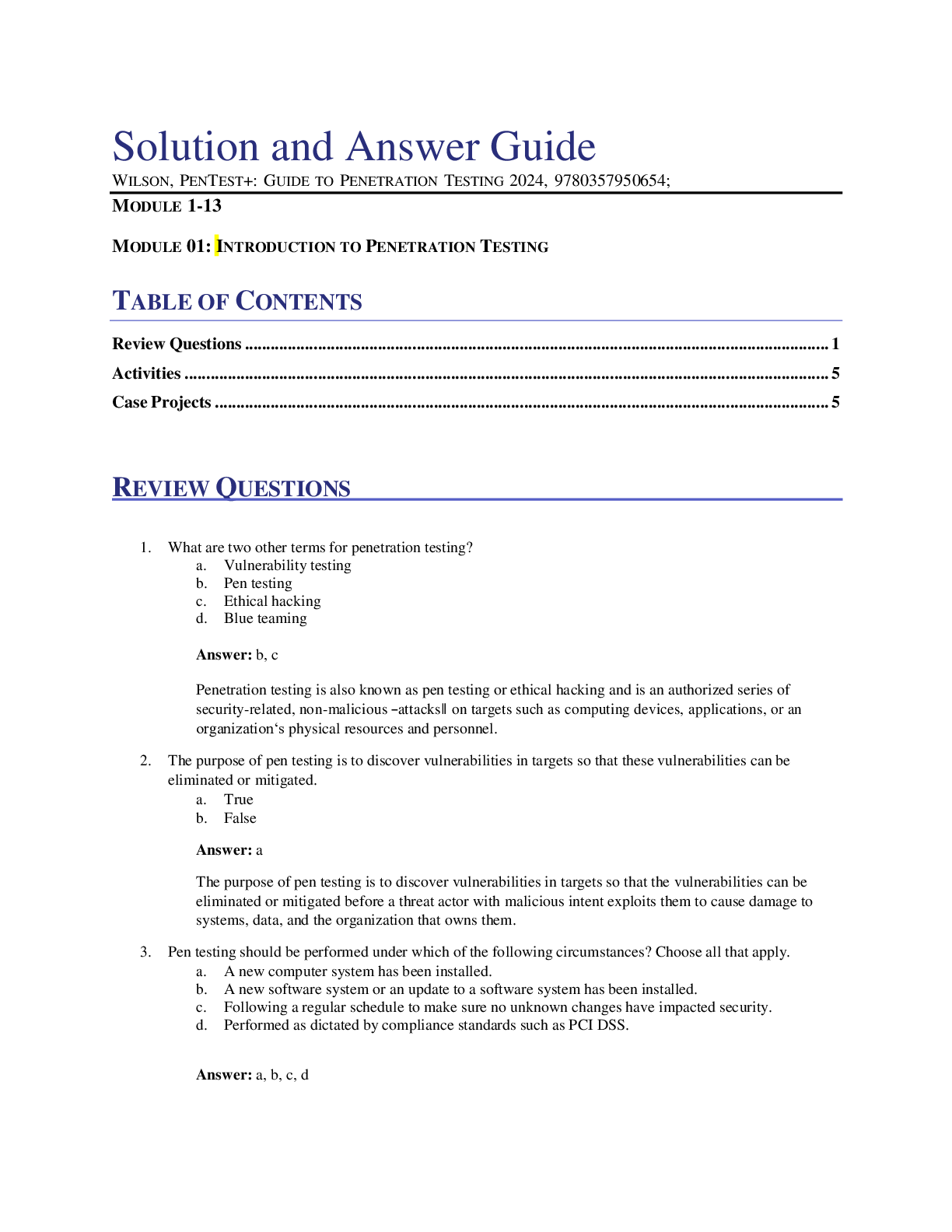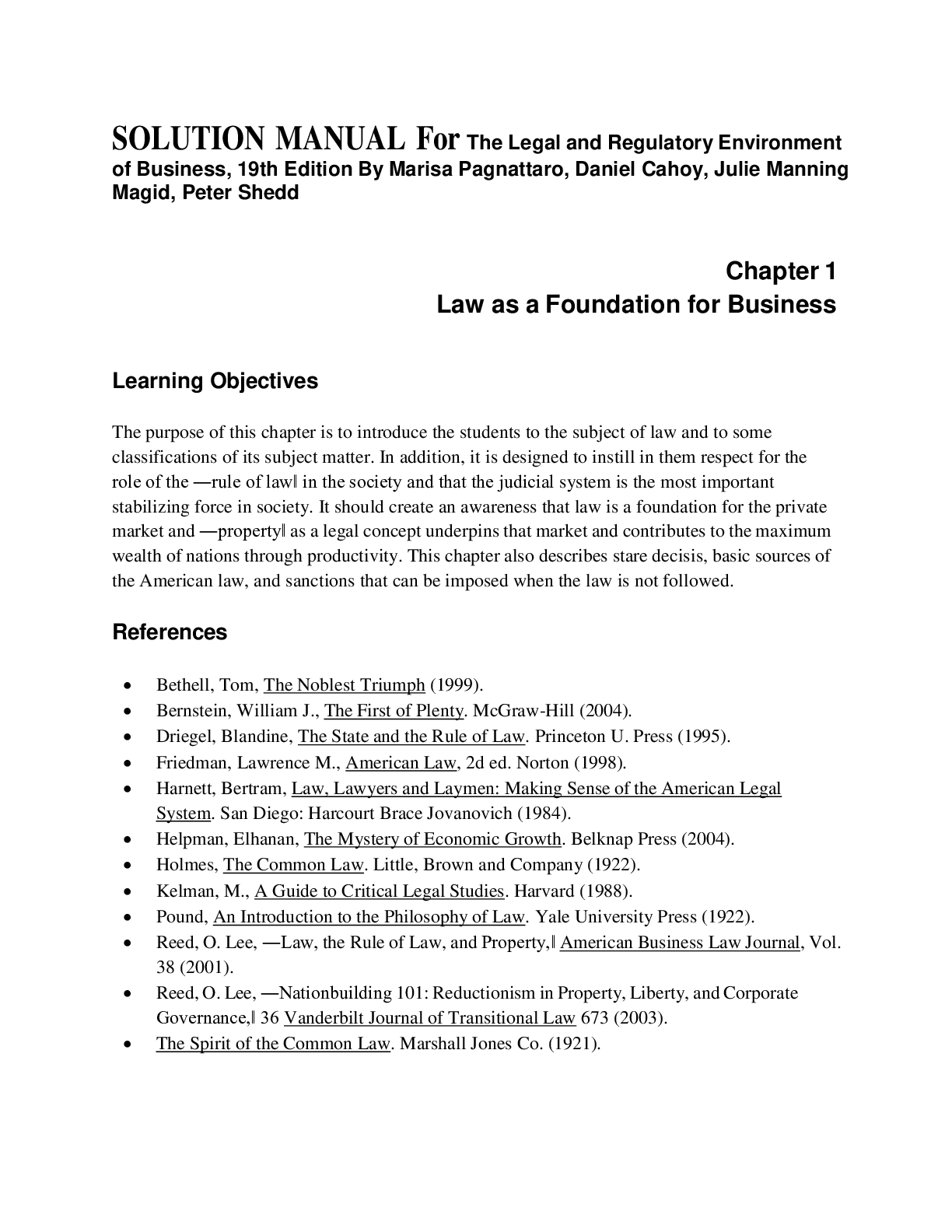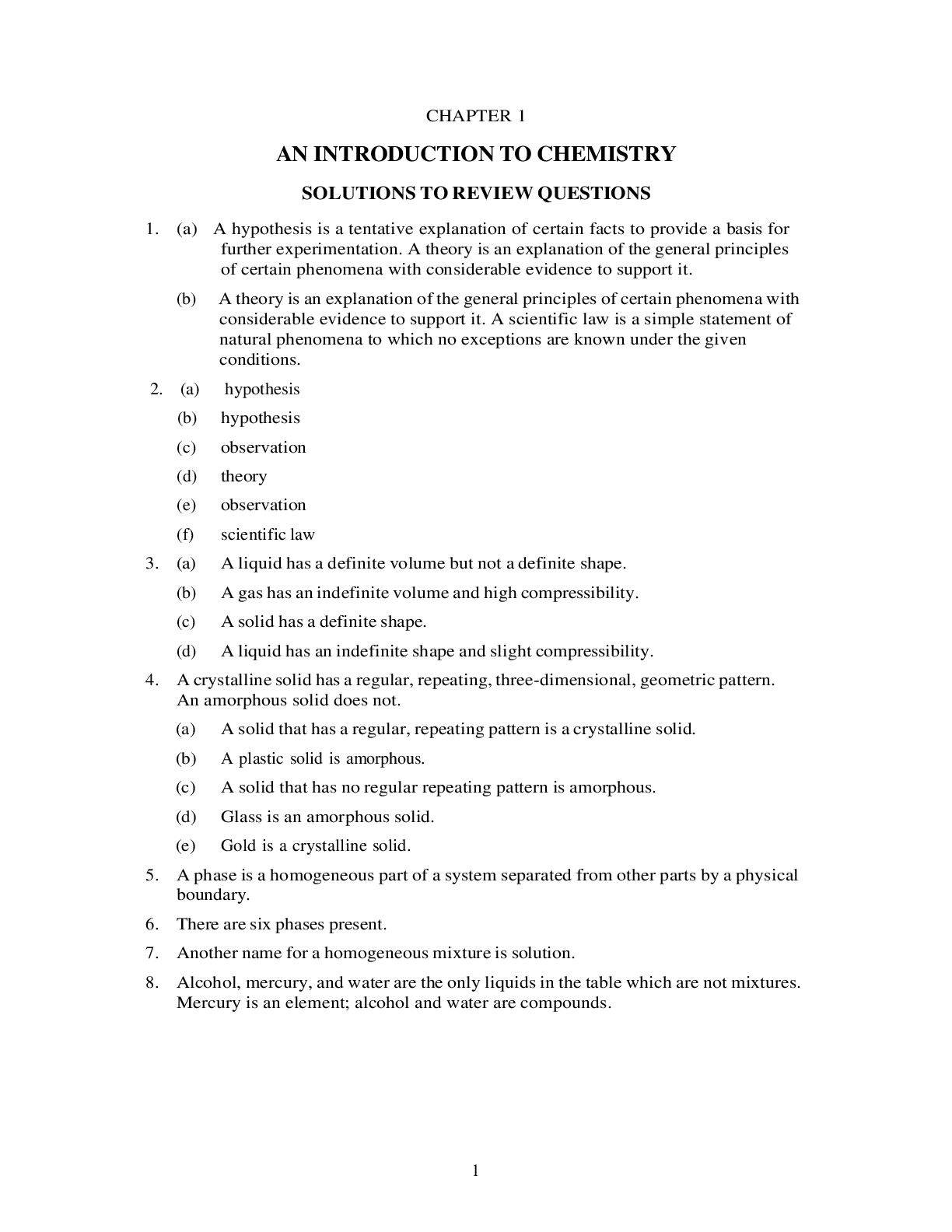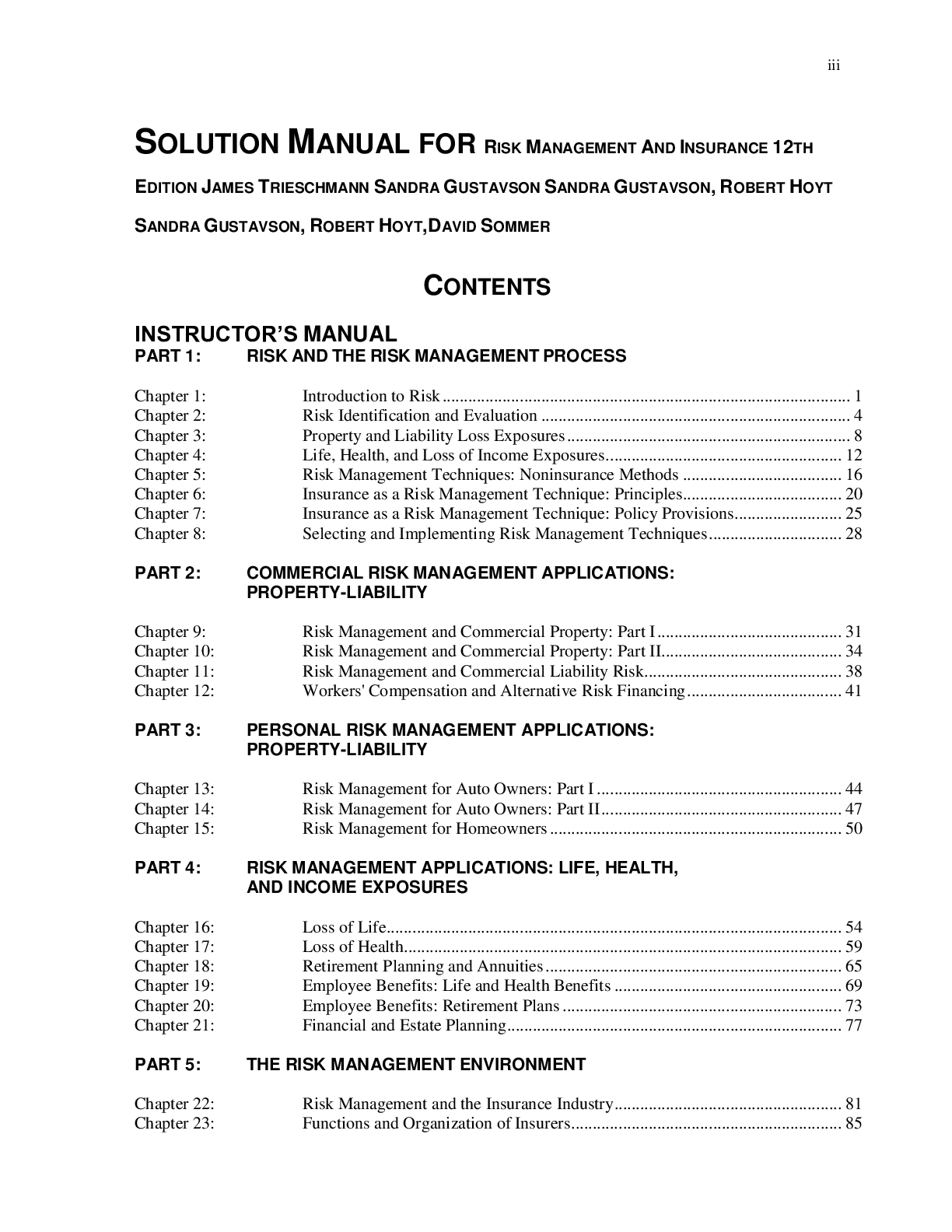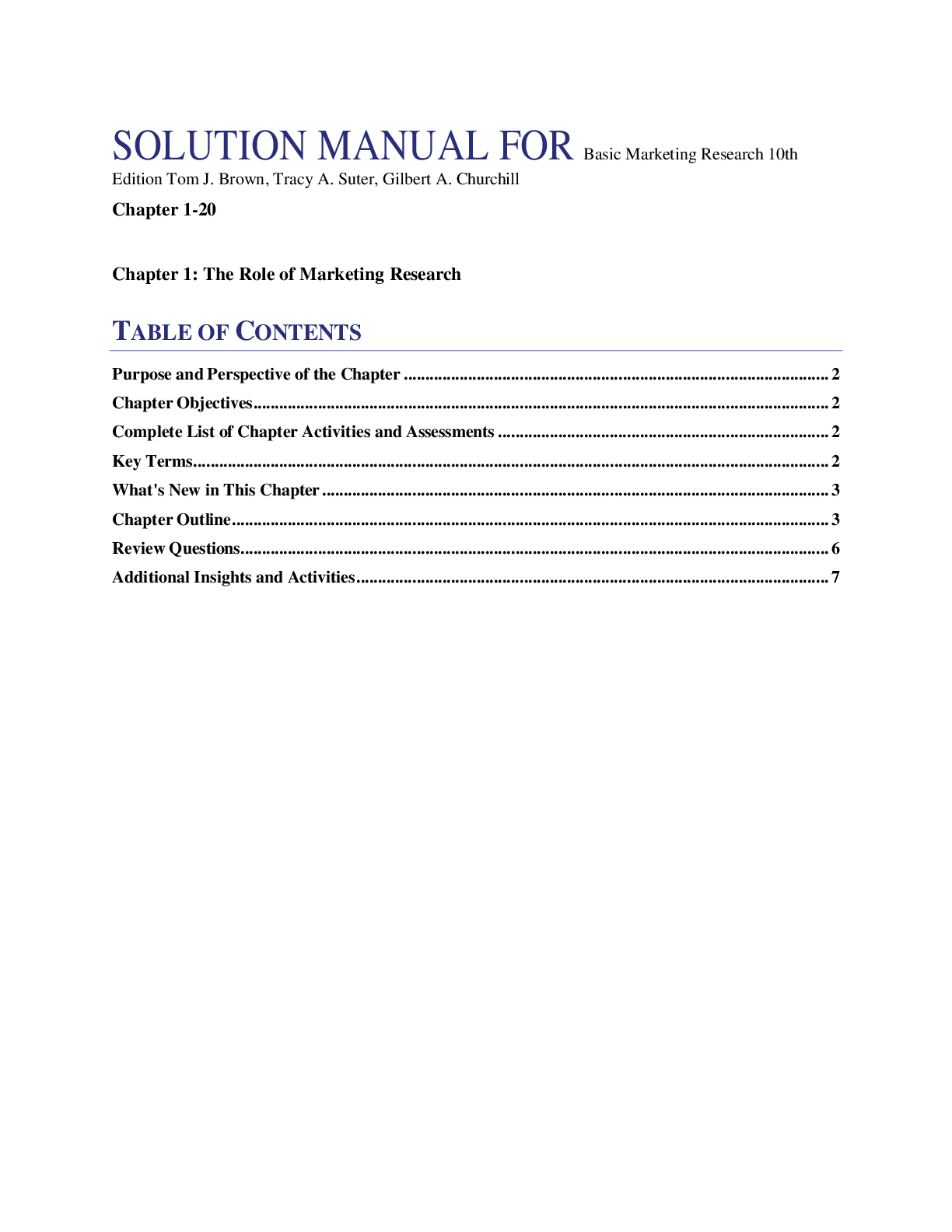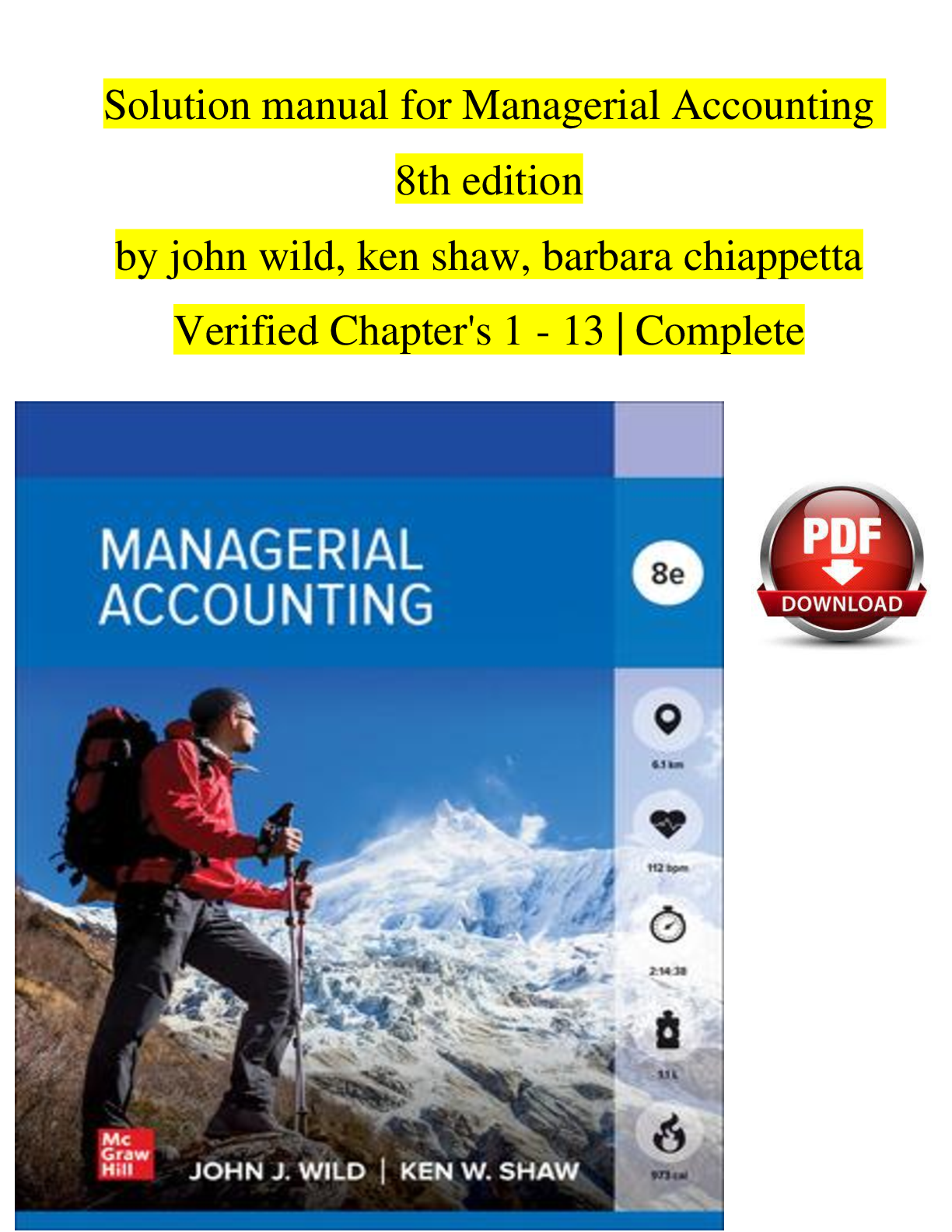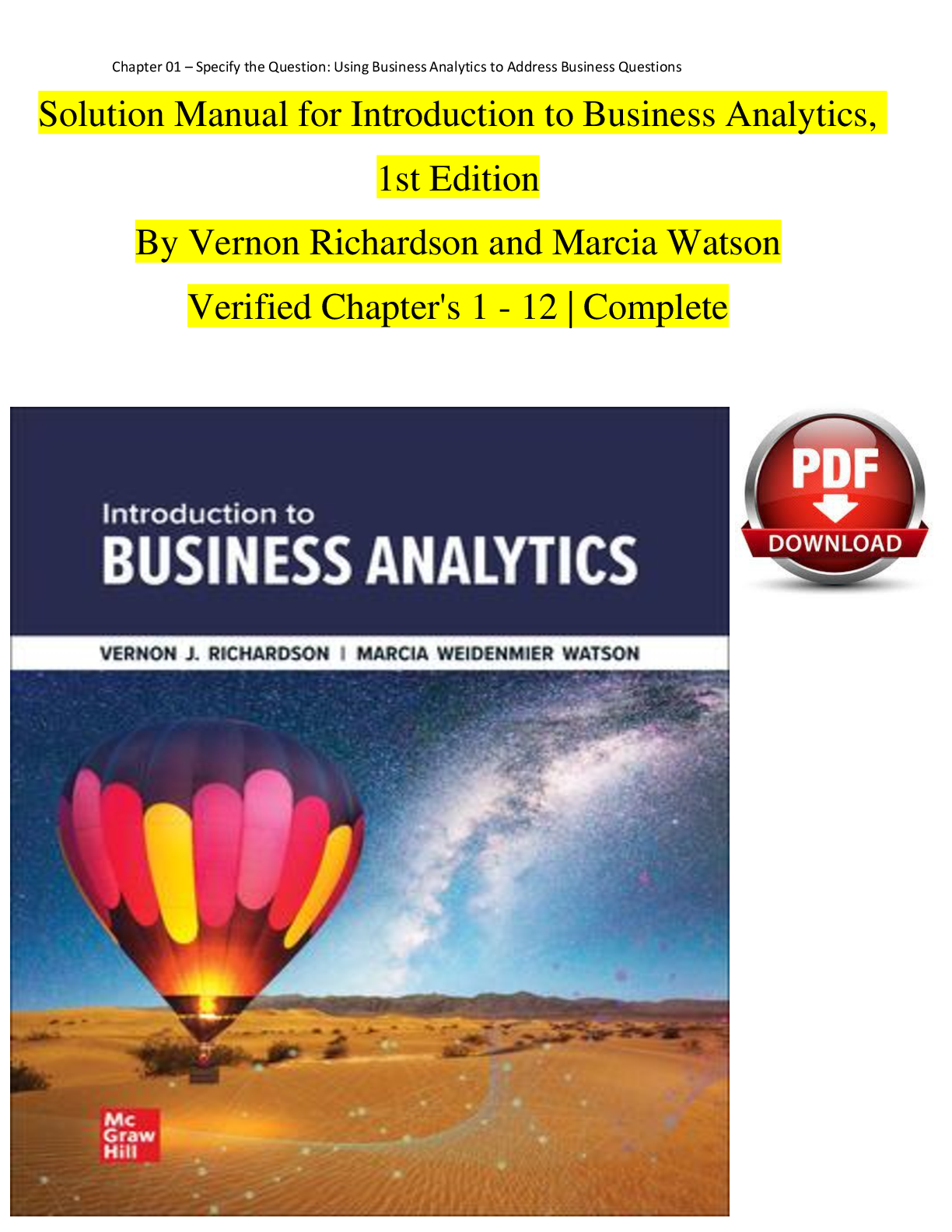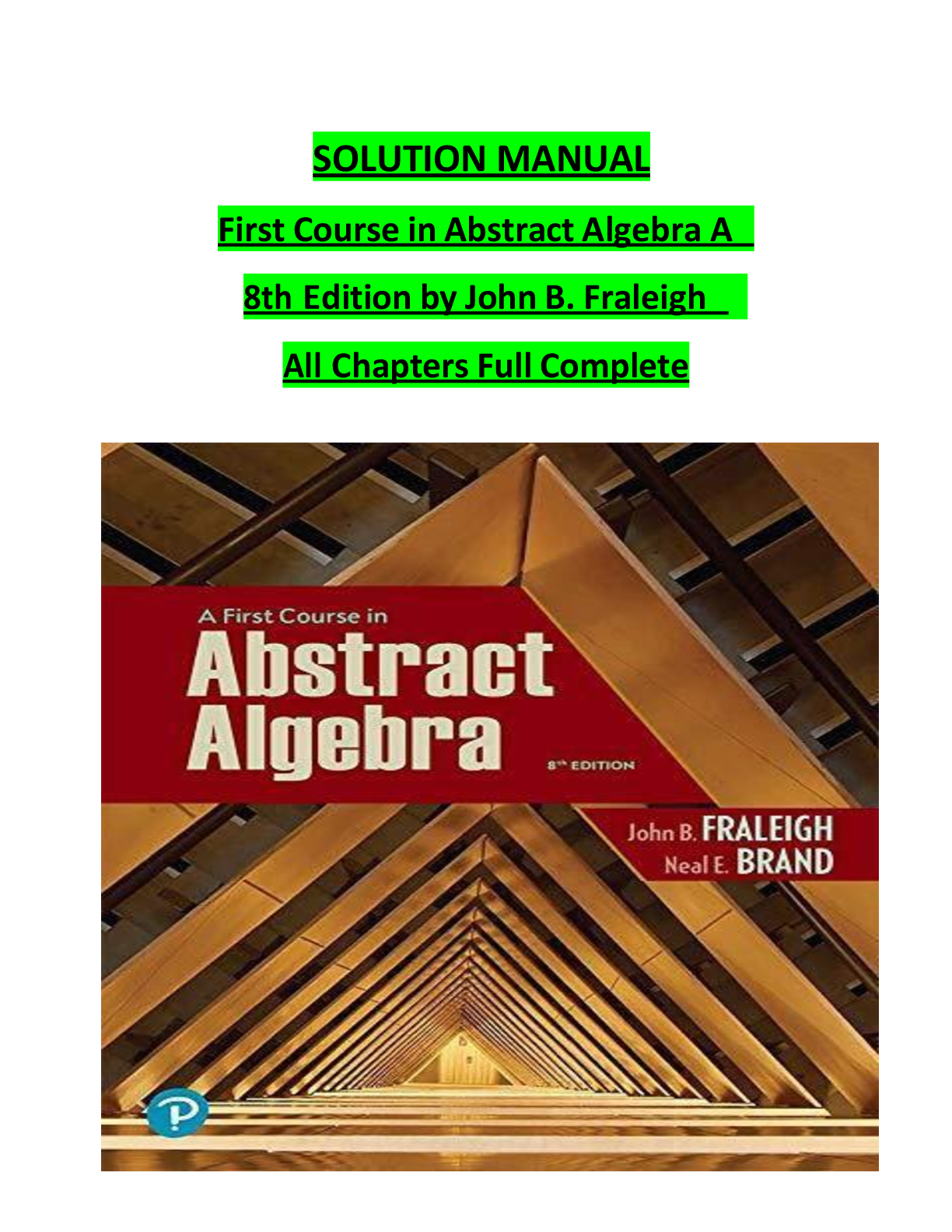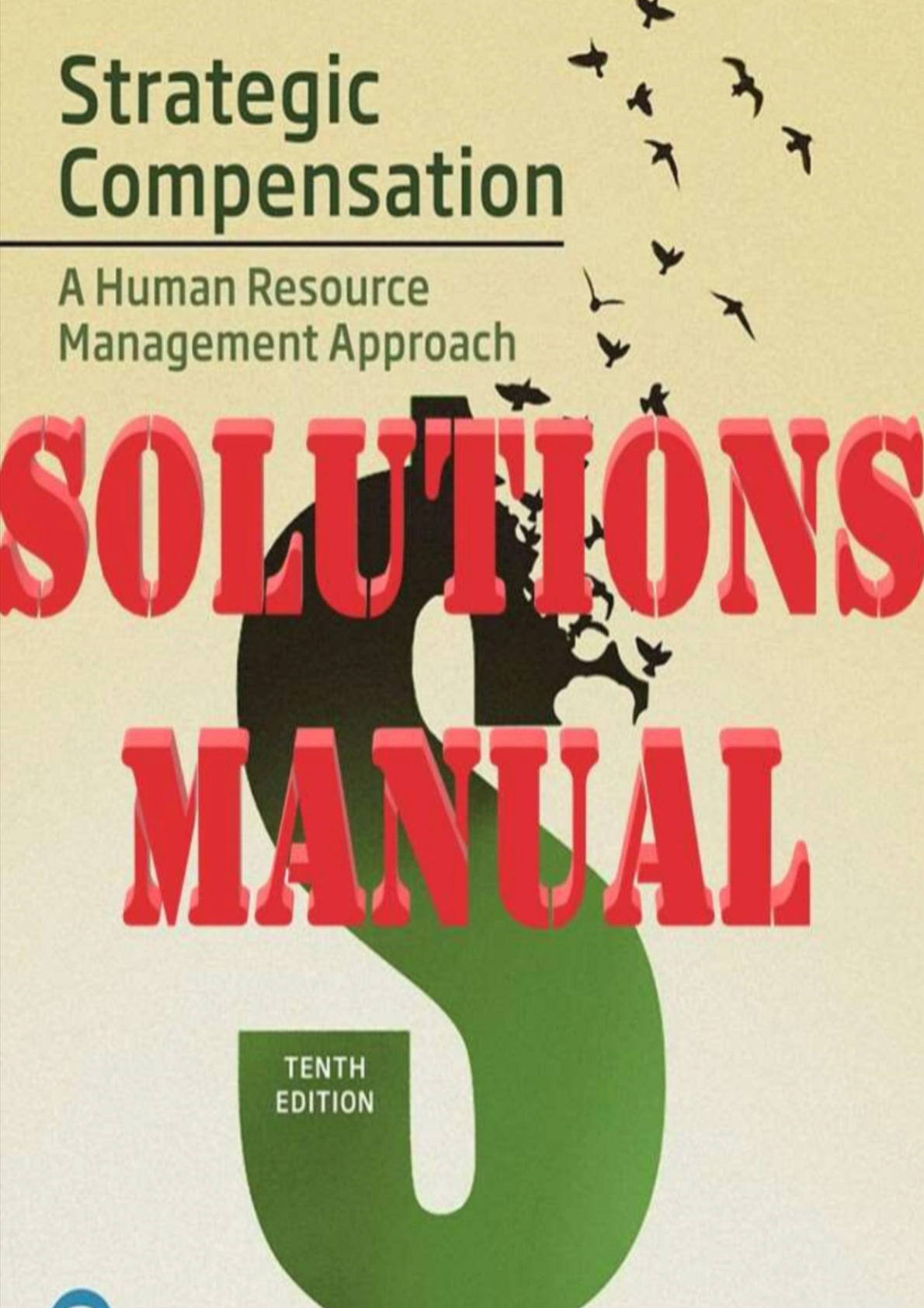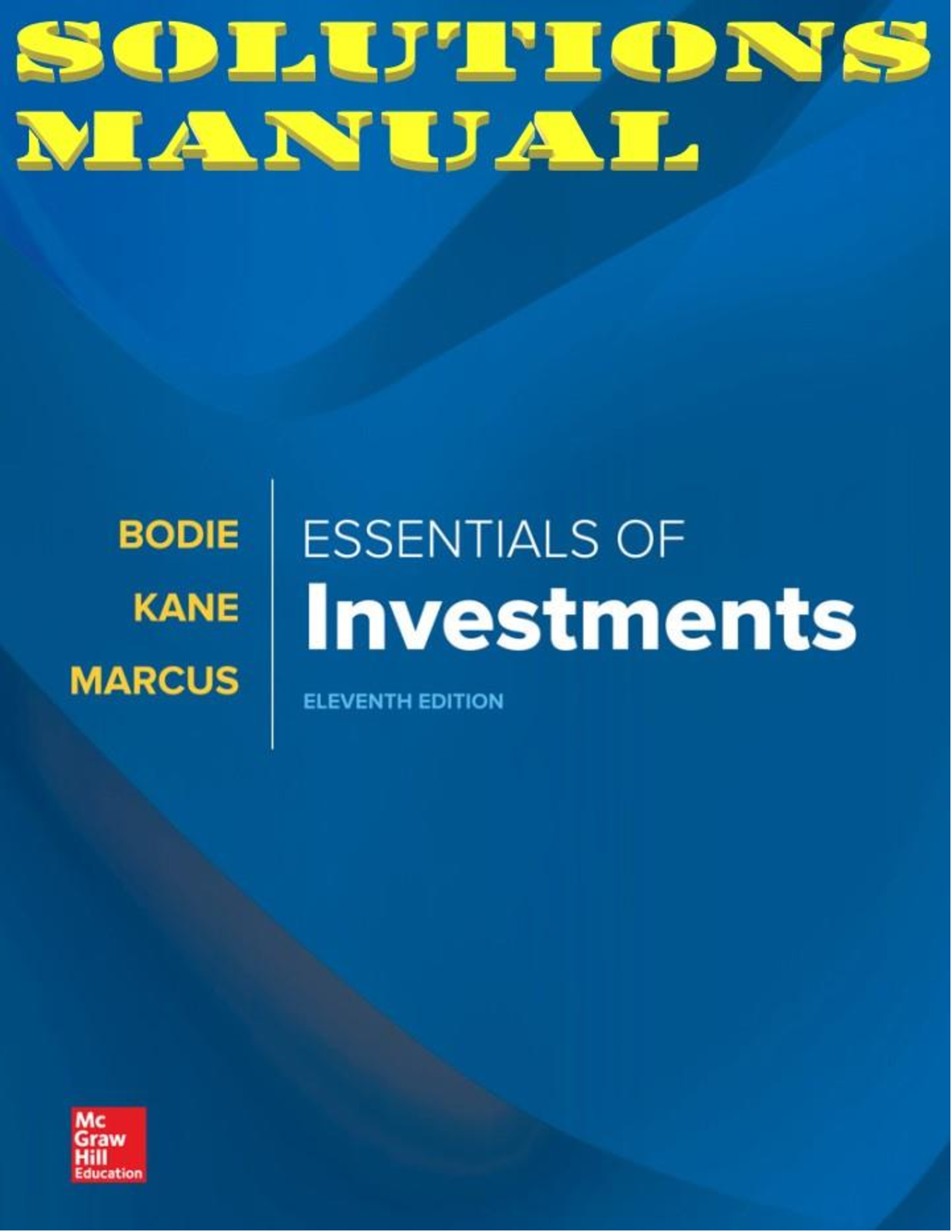Education > SOLUTIONS MANUAL > Solution Manual For Anesthesia, Analgesia, and Pain Management for Veterinary Technicians 1st Editio (All)
Solution Manual For Anesthesia, Analgesia, and Pain Management for Veterinary Technicians 1st Edition by Janet Amundson Romich
Document Content and Description Below
Solution Manual For Anesthesia, Analgesia, and Pain Management for Veterinary Technicians 1st Edition by Janet Amundson Romich-1. What is the correct definition of the term sedation? a. A drug-induce ... d reversible state of unconsciousness and loss of sensation b. The state characterized by CNS depression accompanied by sleepiness/drowsiness and some degree of relaxation c. A drug-induced state of calm in which anxiety is relieved the patient is relaxed but remains aware of surroundings d. The loss of sensation in a discrete area of the body caused by the administration of a local anesthetic agent Answer: b 2. What is the correct definition of the term tranquilization? a. A drug-induced reversible sate of unconsciousness and loss of sensation b. A drug-induced CNS depression and drowsiness in which the patient is generally unaware of surroundings but will respond to painful stimuli c. The administration of any of a group of compounds that calm and relax an anxious patient but do not induce sleep d. The loss of sensation in a discrete area of the body caused by the administration of a local anesthetic agent Answer: c 3. What do the letters ACVAA stand for? a. American Congress for Veterinary Anesthesia and Analgesia b. Association Certification in Veterinary Anesthesia and Analgesia c. American College of Veterinary Anesthesia and Analgesia d. American Congress for Veterinary Analgesia and Anesthesia Answer: c 2 4. The Academy of Veterinary Technicians in Anesthesia petitioned which veterinary technician organization in 1998 for recognition as the certifying body for veterinary technician specialists in anesthesia? a. Veterinary Support Personnel Network b. National Association of Veterinary Technicians in America-Committee on Veterinary Technician Specialties c. VetMedTeam-Anesthesia Technicians d. Veterinary Anaesthesia School for Technicians Answer: b 5. Which two organizations write anesthesia guidelines? a. AVMA and AAHA b. AVMA and NAVTA c. IVAPM and ACVAA d. IVECCS and IVAPM Answer: a 6. The job of working in veterinary anesthesia entails a. monitoring and recovering the anesthesia patient, caring for all anesthetic equipment, and administering certain medications. b. preparing and monitoring surgical patients, autoclaving surgical equipment, and discharging patients after they recover from anesthesia. c. monitoring and recovering the anesthesia patient, deciding which medications to administer, and preparing surgical summary reports. d. deciding which medications to administer, recording vital signs of the patient while under anesthesia, and disinfecting surgical equipment. Answer: a 7. Why is it important to have anesthetic equipment calibrated regularly? a. Without calibration there is no guarantee that everyone has been properly trained in the use of anesthesia equipment. b. Without calibration the equipment will require extensive repairs the next time it is serviced. c. Without calibration unqualified veterinary staff may manually alter the anesthetic level. d. Without calibration the equipment may give incorrect readings and/or operate incorrectly. Answer: d 8. What does ASA stand for? a. Anesthetic Society of Anesthetists b. Association for Safe Anesthesia c. American Society of Anesthesiologists d. Anesthesia Safety for Animals Answer: c 9. What does balanced anesthesia mean? 3 a. Anesthetic drugs are weighed on a scale before being administered to the patient because many drugs are administered during the anesthetic event b. General anesthesia produced by administering several drugs with the goal of utilizing each drug‘s positive actions while avoiding potential adverse effects associated with large doses of a single drug c. Anesthesia produced by introducing anesthetic agent into the rectum in an attempt to use varying administration routes d. General inhalation anesthesia in which there is no rebreathing of the expired gases Answer: b 10. What does the term analgesia mean? a. Relief of pain without loss of consciousness; absence of pain or noxious stimulation b. Injection of an agent into the spinal canal, generally either into the subarachnoid or epidural space c. A substance used for the control of excessive reaction to or overdosing with a narcotic d. The combining of pain-relieving agents that act on different mechanisms of nociceptive modulation to enhance additive and synergistic effects Answer: a 11. To perform ocular procedures, such as corneal foreign body removal, proparacaine drops are applied to desensitize the cornea. Which type of anesthesia does this describe? a. Regional b. Surgical c. Local d. Dissociative Answer: c 12. By which routes is general anesthesia most commonly administered? a. Intravenously, intramuscularly, and subcutaneously b. Intravenously, subcutaneously, and intraperitoneally c. Inhalation, intramuscularly, and intraperitoneally d. Inhalation, intravenously, and intramuscularly Answer: d [Show More]
Last updated: 1 year ago
Preview 5 out of 195 pages

Loading document previews ...
Buy this document to get the full access instantly
Instant Download Access after purchase
Buy NowInstant download
We Accept:

Reviews( 0 )
$14.50
Can't find what you want? Try our AI powered Search
Document information
Connected school, study & course
About the document
Uploaded On
Oct 25, 2024
Number of pages
195
Written in
All
Additional information
This document has been written for:
Uploaded
Oct 25, 2024
Downloads
0
Views
59

